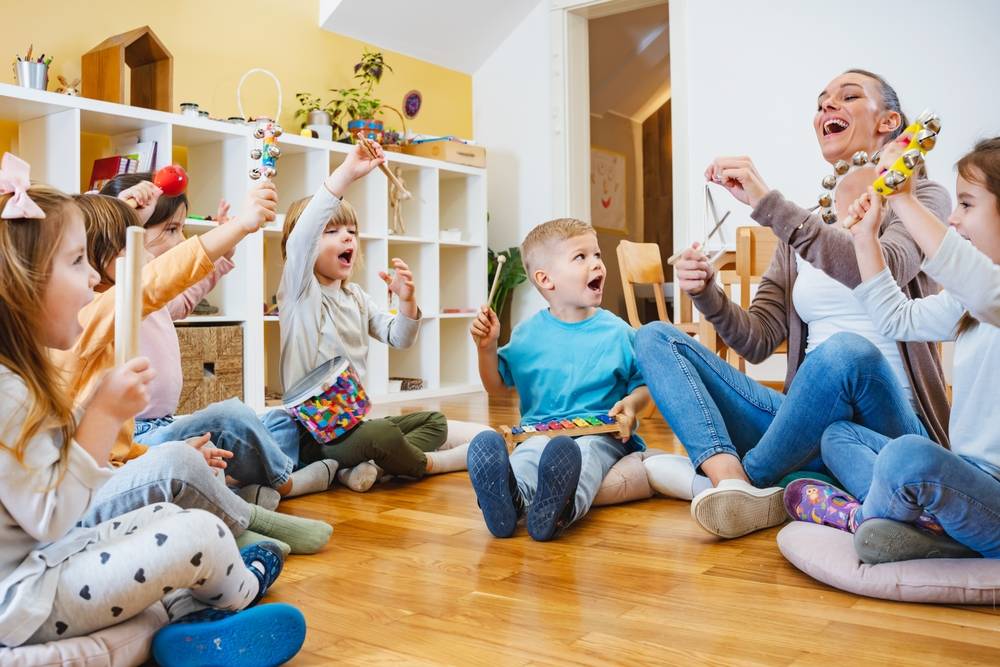
Learning music offers numerous benefits for children, positively impacting their development in various aspects of life. From cognitive and emotional growth to social and physical development, the benefits of music education are far-reaching. Creating a musical environment at home further supports these advantages by providing a nurturing and supportive space for children to explore their musical interests and talents. By surrounding children with music, instruments, and opportunities for engagement, parents can enhance their child’s learning, foster a lifelong love for music, and promote overall holistic development.
Music and Child Development
Music has a profound impact on children’s development and growth. It can enhance their cognitive, emotional, social, and physical abilities. Here are some ways in which music affects children’s development:
- Cognitive Development: Music engages various areas of the brain, promoting language development, memory, and problem-solving skills. It can also improve mathematical abilities and spatial-temporal skills.
- Emotional Development: Music provides an outlet for self-expression and emotional exploration. It can help children develop a sense of identity, self-confidence, and emotional regulation.
- Social Development: Music encourages collaboration and cooperation. Playing in a group or ensemble promotes teamwork, communication, and empathy. It also helps children develop social skills and build relationships with peers.
- Physical Development: Playing musical instruments involves fine motor skills, hand-eye coordination, and dexterity. Dancing and moving to music also promote gross motor skills and overall physical coordination.
10 Recommendations for Creating a Musical Environment at Home
Creating a nurturing musical environment at home can greatly support your child’s musical growth and learning, no matter their age or skill level. Here are some tips to encourage a musical environment:
- Incorporate Music into Daily Life: Integrate music into your daily routines and activities. Play background music during mealtimes, playtime, or quiet time. Sing songs together while doing household chores or during bath time. This creates a musical atmosphere and makes music a natural part of your child’s life.
- Engage in Musical Activities and Games: Encourage your child to engage in musical activities and games that promote learning and creativity. This can include rhythm exercises, musical quizzes, improvisation sessions, or creating simple melodies. Explore online resources or books that may also provide ideas for fun and educational musical activities.
- Make Music Easily Accessible: Have a variety of musical resources readily available in your home. This can include musical instruments, CDs, or digital music libraries, and age-appropriate sheet music or songbooks. Encourage your child to explore different genres and styles of music by offering a wide variety.
- Designate a Practice Space: Set aside a dedicated area for your child to practice their instrument or engage in musical activities. Ensure the space is quiet, free from distractions, and well-equipped with the necessary instruments or materials. This helps create a focused and conducive environment for musical learning.
- Create a Musical Schedule: Establish a regular time for music-related activities. This can include designated practice sessions, listening to music, or engaging in musical games and activities. Consistency in scheduling helps your child develop a routine and discipline in their musical pursuits.
- Support Music Lessons: Consider music lessons in your home where a professional music teacher meets with your child in their designated musical environment and comfort zone. If in-person lessons are not possible, consider virtual music lessons for your child. Set up a dedicated space with a computer, webcam, and a stable internet connection.
- Encourage Active Listening: Teach your child the art of active listening by discussing and analyzing the music they hear. Encourage them to pay attention to different instruments, melodies, rhythms, and dynamics. This cultivates their listening skills and develops a deeper appreciation for music.
- Attend Live Performances: Expose your child to live musical performances whenever possible! Take them to concerts, recitals, or local musical events. Seeing talented musicians perform live can inspire and motivate your child to pursue their own musical aspirations.
- Celebrate Musical Achievements: Recognize and celebrate your child’s musical accomplishments. This can include milestones like learning a new piece, performing for family and friends, or participating in music competitions or events. Positive reinforcement and encouragement fuel their passion for music and motivate them to continue learning and growing.
- Be a Musical Role Model: Embrace your own musical interests and share your love for music with your child. Play an instrument, sing, or listen to music yourself. Your enthusiasm and involvement serve as a powerful influence and inspire your child to embrace music as well.
Music Lessons In Your Home
Having music lessons at home creates a supportive environment that nurtures your child’s learning and musical growth in several ways. Learning in a familiar environment like home can make children feel more comfortable and at ease. They can focus better and develop a positive association with music lessons. With one-on-one lessons, the instructor can tailor the curriculum to your child’s individual learning style and pace. They can address specific strengths, weaknesses, and interests, facilitating faster progress. Lessons in your home also offer flexibility in scheduling and eliminate the need for travel. This can help save you time and make it easier to integrate music lessons into your child’s routine and your family’s busy schedule.
If possible, being present during music lessons at home allows parents to actively participate and support their child’s learning. As a parent or guardian of a music student, you can help reinforce lessons, provide encouragement, and share in the joy of musical accomplishments. Remember, creating a nurturing musical environment is not about pressure or expectation but about fostering a love for music and providing opportunities for exploration and growth. Lessons In Your Home makes learning music easier for your child by delivering top-notch music education at home or virtually. We match students with the perfect teacher to support your child’s growth as a musician. Ready to support your child’s learning through music at home? Discover the benefits of Lessons In Your Home and book a trial lesson today. Lessons In Your Home offers a trial lesson with the flexibility to cancel at any time to help you find the right fit for your family!
